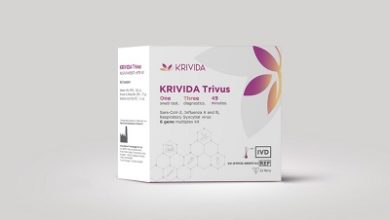ICMR
-
ICMR, Svayam conduct dialogue on ‘Accessibility and Assistive Devices are crucial for Viksit Bharat’
Professionals from AIIMS, ICRC, ICMR among others participated in the event Svayam, India’s leading accessibility organisation partnered with the Indian…
Read More » -
Svayam collaborates with ICMR
To conduct training to reach 600+ medical practitioners Svayam, a prominent accessibility organisation, is set to mark World Accessibility Day…
Read More » -
MUHS unveils India’s first state-led Network of CoE, Digital Health Foundation Course for online medical education
The Network of CoE aims to improve medical research, education, and healthcare quality in the state through a collaborative approach …
Read More » -
Govt unveils national policy on R&D and Innovation in pharma-medtech sector
The scheme will focus on transforming India into a high-volume, high-value player in the global market of pharmaceuticals, meeting the…
Read More » -
India Chamber of Business and Commerce, ICMR in health MoA
The partnership will help to build the future of healthcare in India and India Health Dialogue Platform India Chamber of…
Read More » -
ICMR awards Rs 31-lakh grant to GIMSR doctor for TB research
Project to develop TB care for Indian tribals An Assistant Professor in the Department of Community Medicine at GIMSR, Dr…
Read More » -
ICMR approves KRIVIDA TRIVUS developed by Kriya Medical Technologies
The kit can detect Influenza, SARS CoV2, and Respiratory Syncytial Virus KRIVIDA TRIVUS developed by Chennai-based KRIYA Medical Technologies has…
Read More » -
Dr Mansukh Mandaviya unveils world’s first intranasal COVID-19 vaccine, iNNCOVACC
iNCOVACC is a cost-effective covid vaccine which does not require syringes, needles, alcohol wipes, bandages Dr Mansukh Mandaviya, Union Minister…
Read More » -
Molbio Diagnostics launches Truenat MTB-INH test for TB
Truenat MTB-INH is the only point-of-care Real-Time PCR test that aids in diagnosing (Hr-TB) as the frontline test Goa-based Molbio…
Read More » -
Cabinet approves MoU between India and US in field of health sector
The MoU will contribute towards the development of new, improved and innovative biomedical tools and technologies The Union Cabinet, chaired…
Read More »










